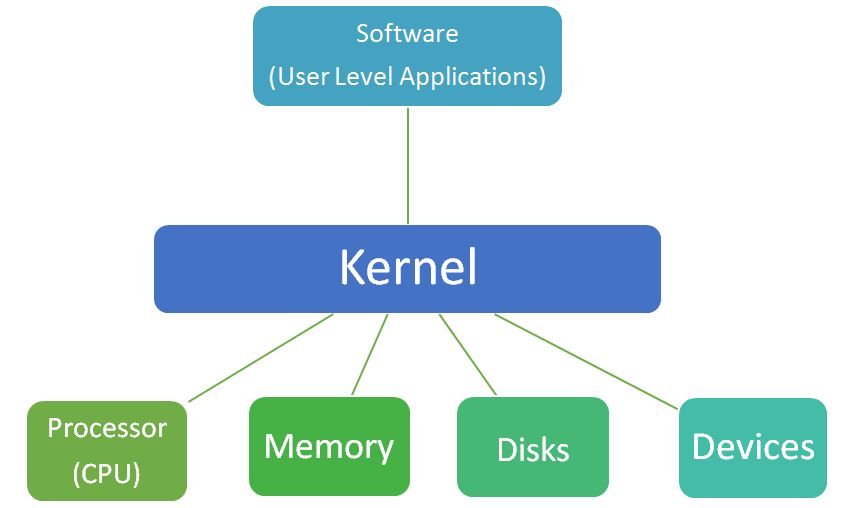Home »
Operating System
Kernel in Operating System
Last Updated : December 30, 2025
What is Kernel in an Operating System?
A Kernel is the central component of an Operating System. The Kernel is also said to be the heart of the Operating System. It is responsible for managing all the processes, memory, files, etc. The Kernel functions at the lowest level of the Operating System. It acts as an interface (bridge) between the user-level application (software) and the hardware. Therefore, the communication between the software and the hardware is done via the Kernel.

Functions of the Kernel in Operating System
The main functions that the Kernel performs are as follows:
- Process Management
- Memory Management
- Device Management
- Interrupt Handling
- Input Output Communication
Now let us understand these functions of Kernel.
1. Process Management
The creation, execution, and termination of processes keep on going inside the system whenever a system is in the ON mode. A process contains all the information about the task that needs to be done. So, for executing any task, a process is created inside the systems. At a time, there are many processes which are in live state inside the system. The management of all these processes is very important to avoid deadlocks and for the proper functioning of the system, and it is handled by the Kernel.
2. Memory Management
Whenever a process is created and executed, it occupies memory, and when it gets terminated, the memory can be used again. But the memory should be handled by someone so that the released memory can be assigned again to the new processes. This task is also done by the Kernel. The kernel keeps track about which part of the memory is currently allocated and which part is available for being allocated to the other processes.
3. Device Management
The Kernel also manages all the different devices which are connected to the system, like the Input and Output devices, etc.
4. Interrupt Handling
While executing the processes, there are conditions where tasks with more priority need to be handled first. In these cases, the kernel has to interrupt in-between the execution of the current process and handle tasks with more priority which has arrived in between.
5. I/O Communication
As the Kernel manages all the devices connected to it, so it is also responsible for handling all sorts of input and output that is exchanged through these devices. So, all the information that the system receives from the user and all the output that the user is provided with via different applications is handled by the Kernel.
Advertisement
Advertisement